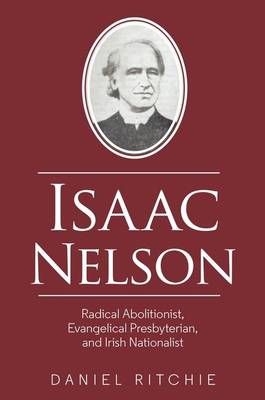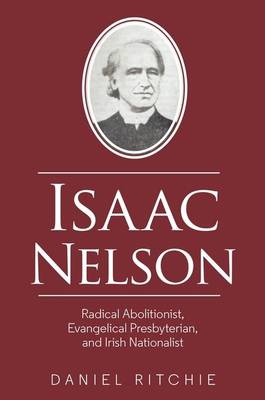
- Afhalen na 1 uur in een winkel met voorraad
- Gratis thuislevering in België vanaf € 30
- Ruim aanbod met 7 miljoen producten
- Afhalen na 1 uur in een winkel met voorraad
- Gratis thuislevering in België vanaf € 30
- Ruim aanbod met 7 miljoen producten
Zoeken
Isaac Nelson
Radical Abolitionist, Evangelical Presbyterian, and Irish Nationalist
Daniel Ritchie
Hardcover | Engels
€ 118,95
+ 237 punten
Uitvoering
Omschrijving
This book reconsiders the career of an important, controversial, but neglected figure in this history of Irish Presbyterianism. The Revd Isaac Nelson is mostly remembered for his opposition to the evangelical revival of 1859, but this book demonstrates that there was much more to Nelson's career. Nelson started out as a protégé of Henry Cooke and as an exemplary young evangelical minister. Upon aligning himself with the Belfast Anti-Slavery Society and joining forces with American abolitionists such as Frederick Douglass and William Lloyd Garrison, Nelson emerged as a powerful voice against compromise with slaveholders. One of the central objectives of this book is to show that anti-slavery, especially his involvement with the 'Send Back the Money' controversy in the Free Church of Scotland and the debate over fellowship with slaveholders at the Evangelical Alliance, was crucially important to the development of Nelson into one of Irish Presbyterianism's most controversial figures. His later opposition to the 1859 Revival has often been understood as being indicative of Nelson's opposition to evangelicalism. This book argues that such a conclusion is mistaken and that Nelson opposed the Revival as a Presbyterian evangelical. His later involvement with the Land League and the Irish Home Rule movement, including his tenure as the Member of Parliament for County Mayo, could be easily dismissed as an entirely discreditable affair. While avoiding romantic nostalgia in relation to Nelson's nationalism, this book argues that Nelson's basis for advocating Home Rule was not as peculiar as it might first appear.
Specificaties
Betrokkenen
- Auteur(s):
- Uitgeverij:
Inhoud
- Aantal bladzijden:
- 336
- Taal:
- Engels
Eigenschappen
- Productcode (EAN):
- 9781786941282
- Verschijningsdatum:
- 20/04/2018
- Uitvoering:
- Hardcover
- Formaat:
- Genaaid
- Afmetingen:
- 163 mm x 236 mm
- Gewicht:
- 639 g

Alleen bij Standaard Boekhandel
+ 237 punten op je klantenkaart van Standaard Boekhandel
Beoordelingen
We publiceren alleen reviews die voldoen aan de voorwaarden voor reviews. Bekijk onze voorwaarden voor reviews.











